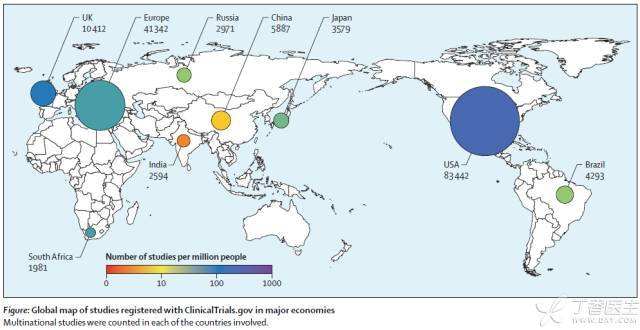
Every doctor is irrigated by all kinds of knowledge along the way-
Brick-like textbooks, teaching teachers’ experience, consensus of experts in the field, clinical guidelines at home and abroad…
Do you like to use what as a reference when making medical decisions in clinical work?
Starting from a Lancet’s Paper
Last October, the Lancet published a paper: Achieving best outcomes for patients with cardiovascular disease in China by enhancing the quality of medical care and establishing a learning health-care system.
Author Professor Jiang Lixin is Lancet’s new editor-in-chief in 2015. Lancet’s evaluation of her is [the foundation of evidence-based medicine in China]. She has led and organized a series of large-scale international multi-center clinical trials and case-control studies in China.
This is an article on how to improve the quality of medical care and improve the benefits of cardiovascular disease treatment. The article mentions an interesting data:
Professional societies in China have released 14 clinical practice guidelines for cardiovascular disease management, compared with 186 expert consensus guidelines. The ratio (14:186) is much lower than the present ones from the American Heart Association (55: 16), European Society of Cardiology (35: 13), and the UK National Institute for Health and Care Excellence (13: 4).
English is too long to read? It doesn’t matter, Clove Garden (Micro Signal: Dingxiangwang) has summed up a picture for you:
Comparison of Clinical Guidelines and Expert Consensus Issued by Countries from 2000 to 2015
From this table and the compiled data, it can be seen that in the cardiovascular field, China has issued nearly 200 expert consensus, compared with 14 clinical guidelines, and the number of expert consensus is more than ten times that of the guidelines.
Why are there so few guidelines in China?
The formation of guidelines needs to be based on a large number of high-quality clinical trials.
For example, among the 14 cardiovascular clinical guidelines published in China mentioned in the above-mentioned Lancet paper, 216 studies with evidence level A (best quality) were collected, of which only 21 (less than 10%) studies had experimental data of Chinese patients.
The lack of research data is one of the reasons why China’s clinical treatment experience is difficult to translate into reliable guidelines.

A survey on the number of clinical studies found that although the total number of studies in China is not too low, due to the large population base, on average, the number of studies per 100,000 people is not as large as that in some African countries and Brazil…
As shown in the above figure, the color of the circle represents the average number of studies per 100,000 people. Although the small yellow circle representing China is not too small compared with neighboring countries, European and American countries still have a long way to go.
Has it subverted the three views of being a clinician?
We often say that there is a shortage of what in China, that is, there is no shortage of cases-because of its large population, it has extraordinary advantages in collecting big data on diseases and rare diseases.
In front of such a [map], my face hurts a little…
Hippocrates and the Front Line of Modern Medicine
Evidence-based medicine (EBM) includes epistemological EBM, which emphasizes the statistical probability reflected by double-blind randomized controlled trials, and practical EBM, which is guided by guidelines and considers the costs and benefits in practical application.
In evidence-based medicine, there is a well-known GRADE evidence hierarchy system.

Expert Opinion is at the lowest D level in the evidence.
Evidence-based medicine poses a great challenge to the traditional expert authority in medicine. In other words, evidence-based medicine is the best embodiment of the conflict between Hippocratic medical ethics and modern medicine.
Everyone who gives Yu Yi: Yu Jing is like his parents… As far as I know, my son, the son of my teacher, and the student who vowed to abide by this agreement will not pass on to others, regardless of dictation or book transmission.
